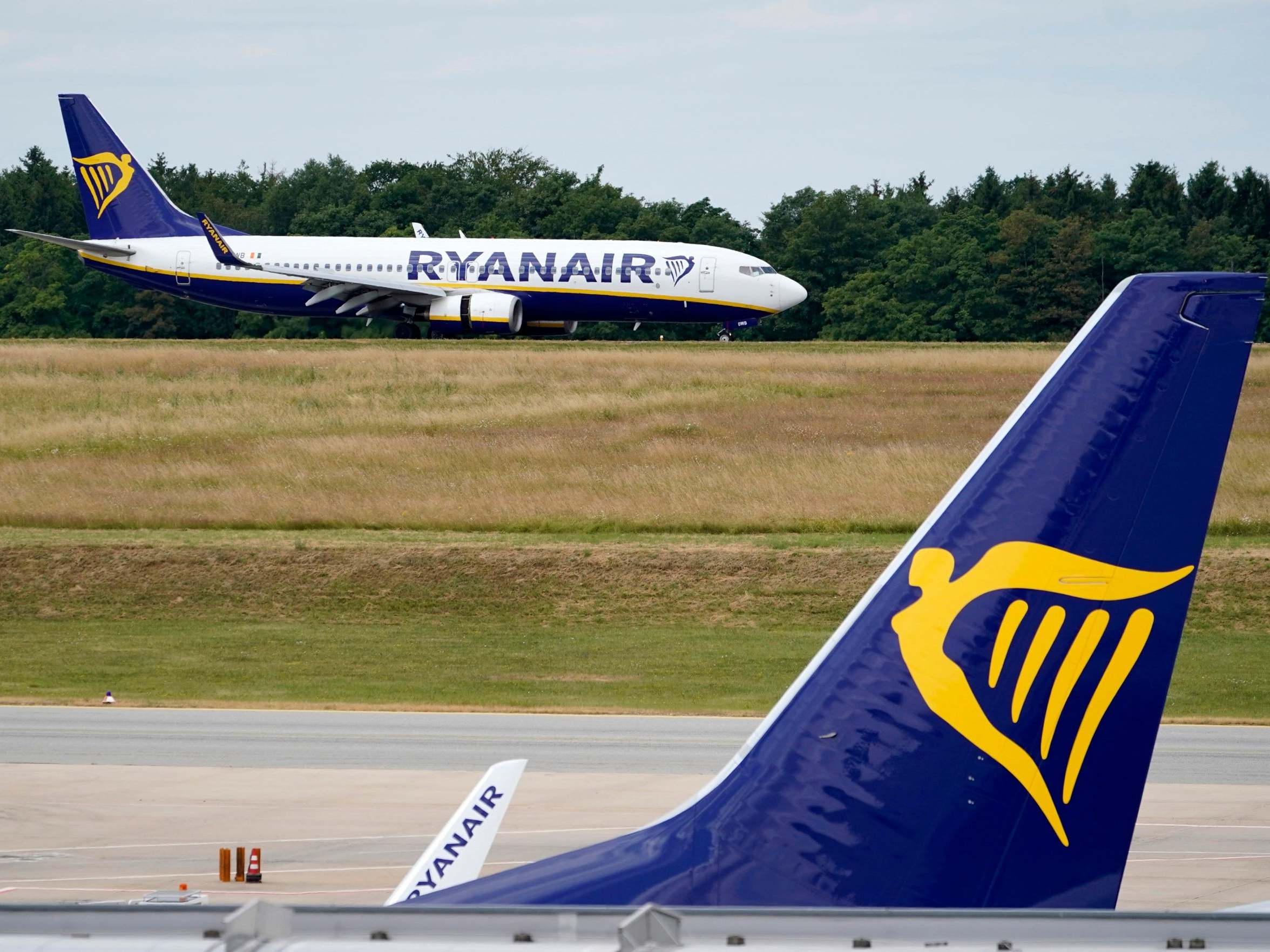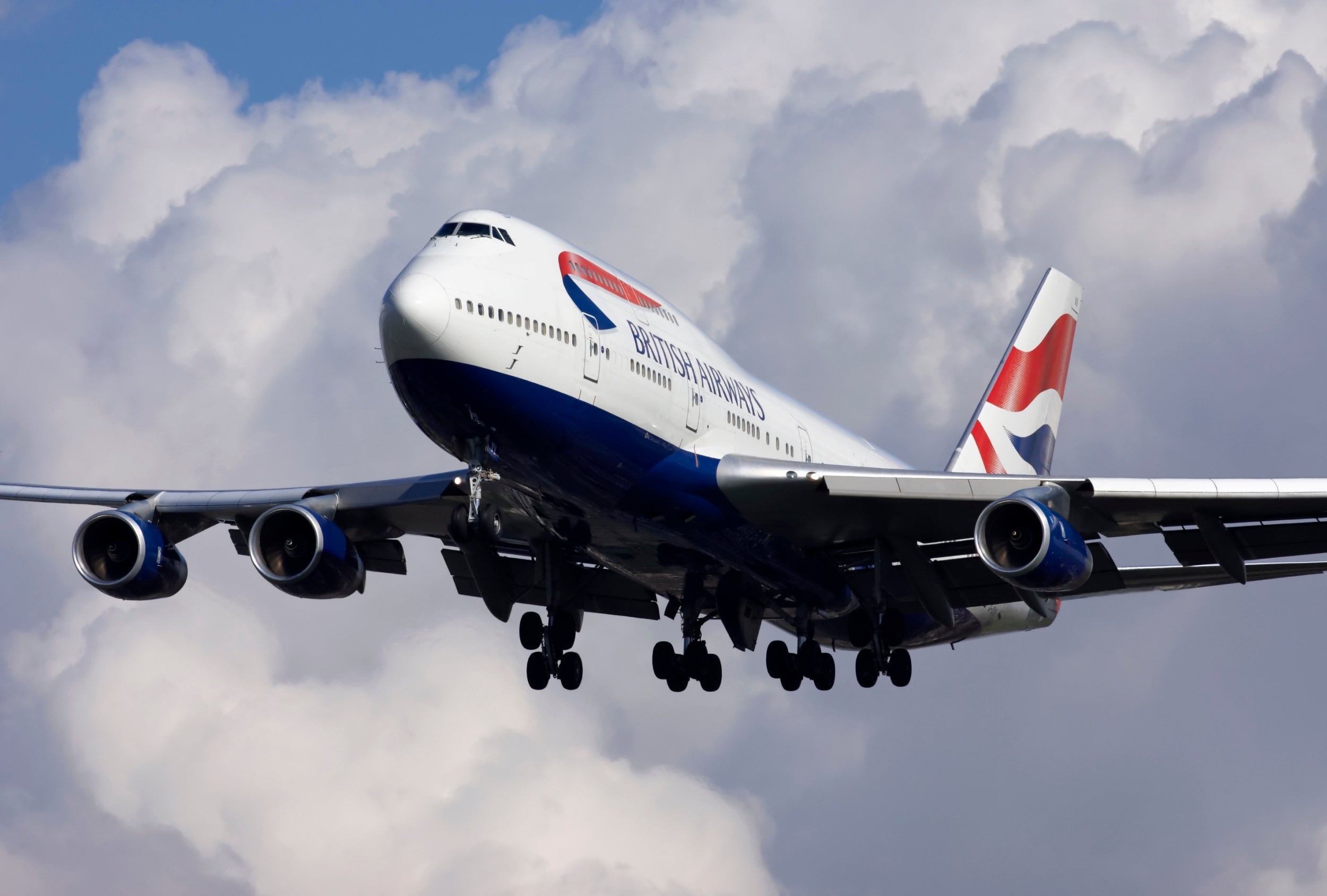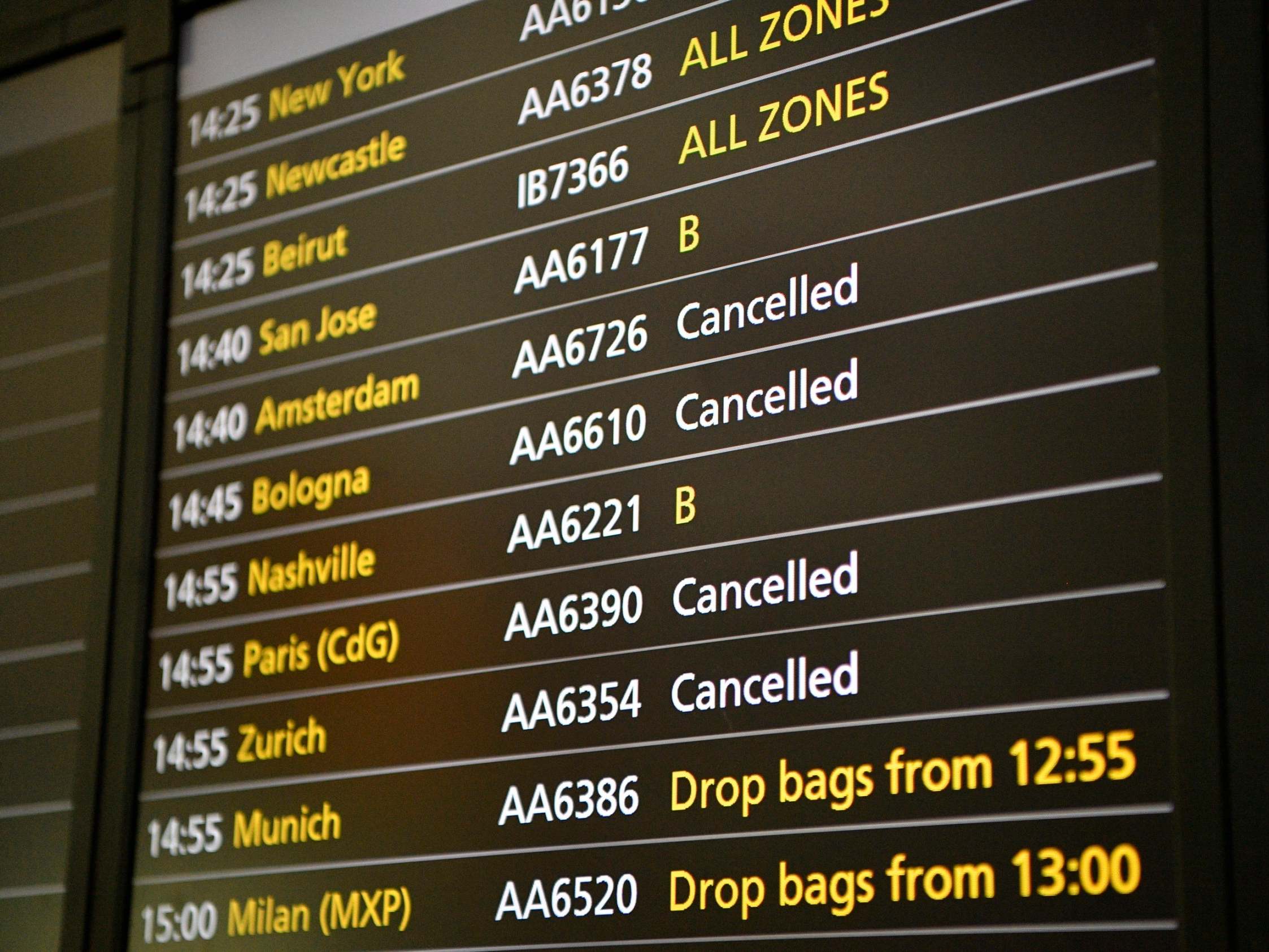Passport checks, airport taxes, pilots on strike and rights regarding refunds
Got a question? Our expert, Simon Calder, can help


Q I read with interest your article in The Independent, “Passenger flies to Spain using daughter’s passport”. While not quite the same situation, I flew last year on a UK domestic flight and never once had my passport/photo ID checked.
With no luggage to check, I scanned my boarding pass to enter security and showed my boarding pass to an agent upon boarding the aircraft. This was my only interaction with staff and at no time was my passport or any other form of photo ID required. It wasn’t until I was seated on the plane that I realised nobody had checked.
Granted it was an internal flight but nevertheless it struck me as odd and mildly concerning. Do you agree?
Name withheld
A There is no obligation for airlines to check identity on UK domestic flights, but they all say or imply you must carry ID. For example, the Scottish airline Loganair says: “We will only carry you if you are the passenger named in the ticket. We may ask you to prove that this is the case.”
In my experience they sometimes bother to check, and sometimes don’t (although Ryanair always does). The reason airlines make the stipulation, has nothing to do with security – though sometimes they pretend that it is. It is purely about revenue protection, for example so I don’t use a friend’s ticket to travel.
With a few exceptions on Highland and island flights in Scotland, everyone boarding a flight within the UK goes through security screening. The thinking is that as you have been checked you do not pose a threat to the aircraft, even if you are not exactly the person named on the ticket.
Someone who attempts to travel under another person’s name and is discovered will be denied boarding. Theoretically they could also be prosecuted under Section 15 of the 1968 Theft Act for dishonestly obtaining a pecuniary advantage. But I have never heard of this happening, nor of an airline pursuing an errant passenger for “unjust enrichment”.

Q British Airways’ airport taxes from Heathrow to Johannesburg are £341 return. Why so much?
Lauren L
A The actual airport tax (more accurately the Passenger Service Charge applied by Heathrow for long-haul flights) is over £40, and one-third as much (£13) for South Africa’s leading airport, O R Tambo. Air Passenger Duty charged by the UK for leaving the country on a long-haul flight in economy is £78 (or, in anything but economy, £172). But that still leaves over £200 unaccounted for. So what might it be?
“British Airways may impose a charge called a carrier-imposed charge as part of the total price of the airline ticket, which you may see stated separately in certain displays during the booking process or on your final e-ticket receipt.”
This “carrier-imposed charge” used to be known as a fuel surcharge and was first introduced when the cost of aviation fuel surged. It was a way for the airlines to say: “Sorry fares have gone up, but it’s not our fault – blame the oil producers.”
Then the price of fuel started to fall, but by then the airlines had got used to the idea of extracting extra, especially from frequent flyers cashing in miles for “free” flights. They have long had to pay for the taxes, fees and charges, and coughed up the fuel surcharge when it was a legitimate addition. Today, they continue to pay the surcharge, which makes the British Airways Avios scheme less attractive.
Of course, for those of us who buy tickets in cash, it really makes no difference: pricing rules thankfully specify that the airline must quote the fare inclusive of all non-optional extras. And there is one possible benefit in the unfortunate case that you need to cancel.
BA says: “A refund of the carrier-imposed charge or fuel surcharge where applicable may be made on unused flights in your itinerary if permitted by the fare rules and conditions applicable to your booking.”
So you might get back more than you imagined.

Q A dozen of us are going on a golfing holiday to the Costa del Sol on 3 September, flying with Ryanair from Stansted to Malaga early morning and returning on 11 September. We have heard that Ryanair pilots will be on strike from 2 to 4 September. So after contacting everyone in our group, we decided to book an outward only flight with easyJet on the morning of 3 September so as not to disrupt our coach to airport, accommodation and golfing bookings for the week.
Can we be assured that Ryanair will honour our return flights which have been paid for?
Jon M
A Pilots working for Ryanair in the UK and belonging to the British Airline Pilots’ Association (Balpa) have voted strongly in support of industrial action in a dispute over a wide range of issues, from pensions to maternity benefits. They have set strike days of 22 and 23 August, as well as the 2-4 September stretch that may affect your flight.
My calculation is that, of the 2 million people due to fly on Ryanair on those five strike days, around 350,000 are potentially at risk of disruption. But the actual number who will be affected if industrial action goes ahead will be significantly smaller. Ryanair will use non-union pilots to fly key services, of which I imagine yours is one – for the very lucrative passenger load coming back at the end of the school holiday, rather than your outbound flight.
The “insurance policy” you have chosen by booking new flights on easyJet is an expensive one; if the original Ryanair departure does go ahead, you will not be entitled to a refund. But I can understand you wanting some certainty. Many other travellers booked on the Irish airline on those key dates have contacted me to say how unsettling they find the situation.
To answer your specific question: unlike many “legacy” airlines (British Airways, Air France, Lufthansa, etc), Ryanair does not cancel the return leg even if you are a no-show for the outbound. So you can rest assured your homeward leg will fly as normal – subject to air-traffic control constraints, airport strikes etc.
If the Ryanair pilots’ action is called off, you will be left with duplicate bookings. If this happens, my advice is to take the Ryanair flight then try to extract some value from the easyJet tickets by re-booking for a different adventure sometime in the future. On more expensive tickets, a fair amount of the fare can be transferred on.

Q My parents-in-law suffered from the British Airways IT issues on Wednesday. They landed from the US into Heathrow and their connecting flight to Vienna was cancelled.
BA are very quick to push you online to rebook or refund, but is the refund wise? Does accepting a refund affect your rights, or in theory can you claim a refund on the cancelled flights, as well as EU compensation?
Keith M
A Your relatives were among 25,000 people whose flights to or from Heathrow were cancelled by another IT failure at British Airways.
In these circumstances, European air passengers’ rights rules mean BA has to rebook them as swiftly as possible on whatever flights are available – which in this case would probably be Austrian Airlines from Heathrow, or possible a connection on Air France/KLM or Lufthansa.
British Airways must also provide meals and, if necessary, a hotel, while they waited for the connection. I hope they were swiftly rebooked and arrived without too long a delay.
However, I have heard from several people who were stranded at Heathrow that staff were not actively rebooking passengers on rival airlines, preferring to persuade travellers either to accept a refund or wait for the next available flight on BA. I stress that I have no direct proof of this – though perhaps your parents-in-law may?
Since they were taking a US-Heathrow-Vienna flight, in my view the question of a refund does not arise: the airline is not going to hand back the whole cost of the ticket, unless they decided to fly straight back to America. And BA will need to pay for the onward flight to the Austrian capital, whichever airline it is with. If British Airways handed back a fraction of the cost of the overall ticket, I can guarantee that the figure would be way short of the cost of a short-notice flight to Vienna.
In any event, the pair should be able to claim €600 (£550) per person if they arrived more than four hours late in the Austrian capital.
Email your question to s@hols.tv or tweet @simoncalder
Join our commenting forum
Join thought-provoking conversations, follow other Independent readers and see their replies
Comments